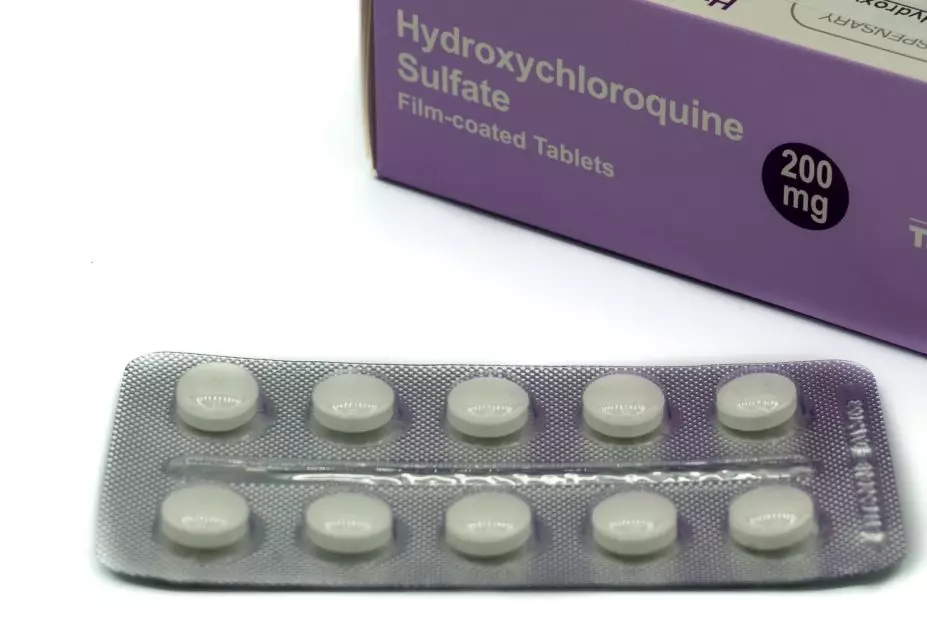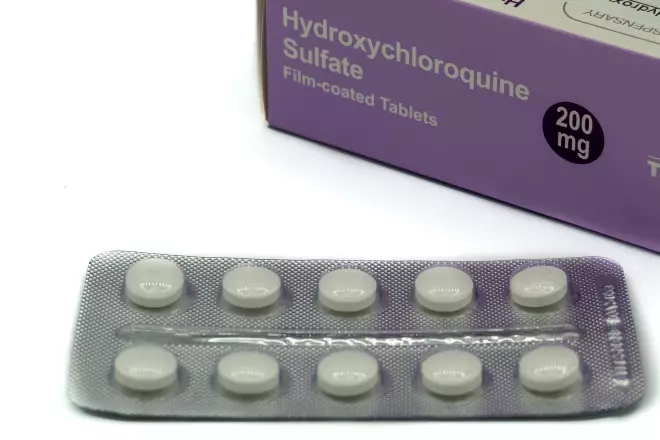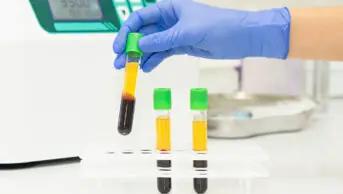
Shutterstock.com
Open access article
The Royal Pharmaceutical Society has made this article free to access in order to help healthcare professionals stay informed about an issue of national importance.
To learn more about coronavirus, please visit: https://www.rpharms.com/resources/pharmacy-guides/wuhan-novel-coronavirus

Source: Shutterstock.com
There are three UK trials currently investigating hydroxychloroquine use in the treatment of COVID-19
Hydroxychloroquine does not significantly reduce admission to intensive care or improve survival rates in patients hospitalised with pneumonia owing to COVID-19, a study published in the BMJ (14 May 2020) has found.
The study compared 84 patients in France who received hydroxychloroquine within 48 hours of admission, at a dose of 600mg per day, and 97 who did not.
A weighted analysis found that, after 21 days, 76% of patients in the treatment group survived without transfer to the intensive care unit compared to 75% in the control group (weighted hazard ratio [WHR] 0.9; 95% confidence interval [CI] 0.4–2.1).
Overall, 89% of those who received hydroxychloroquine survived after 21 days, compared to 91% in the control group (WHR 1.2; 95% CI 0.4–3.3).
Although the researchers said that caution was needed in the interpretation of their results, the researchers concluded that their findings did not support the use of hydroxychloroquine in patients hospitalised with COVID-19 pneumonia.
Hydroxychloroquine is currently being studied under all three of the UK’s major COVID-19 trials: PRINCIPLE (platform randomised trial of interventions against COVID-19 in older people); RECOVERY (randomised evaluation of COVID-19 therapy); and REMAP-CAP (randomised, embedded, multifactorial, adaptive platform trial for community-acquired pneumonia).
A further study, carried out in China and also published in the BMJ on 14 May 2020, also raised questions about the efficacy of the medicine. It found that the antimalarial drug did not clear the virus more quickly in patients with mild-to-moderate COVID-19, when compared to those receiving standard care, and raised concerns about adverse effects.
Researchers randomly assigned 150 adults hospitalised with mild-to-moderate or severe COVID-19 to receive either hydroxychloroquine in addition to standard care, or just standard care.
During the two-week trial, patients with mild-to-moderate COVID-19 in the hydroxychloroquine group were given a loading dose of 1,200mg daily for three days, followed by a maintenance dose of 800mg daily for the remainder. Patients with severe COVID-19 were given 800mg of hydroxychloroquine for a further week.
Researchers took specimens from the upper respiratory tract, lower respiratory tract, or both from each patient during treatment and during post-treatment follow-up visits on days 4, 7, 10, 14, 21, and 28 of the study.
On day 28, tests revealed that there were similar rates of COVID-19 in the hydroxychloroquine and standard care groups. However, adverse events — particularly gastrointestinal events — were more common in those who received hydroxychloroquine (30% vs. 9%).
Symptom alleviation and time to relief of symptoms did not differ meaningfully between the two groups.
The authors of the Chinese study said that, while further work is needed to confirm these results, their findings did not support the use of hydroxychloroquine to treat patients with persistent mild to moderate COVID-19.
“The results of our trial did not show additional benefits of virus elimination from adding hydroxychloroquine to the current standard of care in patients with mainly persistent mild-to-moderate COVID-19,” they said.
“Our trial may provide initial evidence for the benefit–risk profile of hydroxychloroquine and serve as a resource to support further research,” they added.
Gino Martini, chief scientist at the Royal Pharmaceutical Society, said the results highlighted the importance of randomised clinical trials and the use of robust controls when dealing with a complex disease, such as COVID 19.
“However, it is still too early to rule out hydroxychloroquine until all the ongoing clinical trials complete and read out their findings”, he said.
Colin Michie, a paediatrician based in London, told The Pharmaceutical Journal that “despite initial enthusiasm”, analysis of more robust and thorough trials of both chloroquine and hydroxychloroquine had found they were not particularly effective as a therapy in hospitals or intensive care units.
“There remain questions as to whether it has any effects in milder illness, but these are somewhat academic,” he said. “Several big trials are still using these compounds, so more information should be available in [June 2020].”
Chloroquine and hydroxychloroquine have received increased attention since US president Donald Trump heralded the latter as a potential “game changer” on 19 March 2020.


